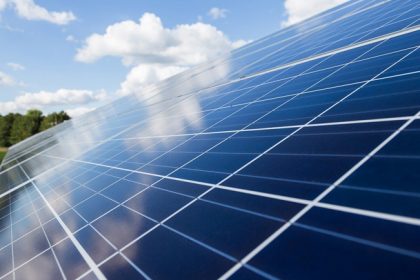The Federal Patent Court has declared a European patent on solar systems to be invalid in Germany. The solar patent had been protected in Germany for 15 years and made claims relating to DC power sources and DC/AC converters. Now it was found to be without inventive step.

Renewable energy, solar and wind energy and solar plants are not a new phenomenon, but have been steadily expanded since the former government under Gerhard Schröder. The solar patent in this action has been in force in Germany for almost as long.
The background to the patent in suit is solar installations. Although the independent patent claims generally speak of direct current power sources, they are about photovoltaic systems. A single photovoltaic cell has an output voltage of 0.5 to 4 volts, and only by connecting many such cells in series can systems with the necessary system voltage be created.
This is the context of the patent in suit. The patent in suit, filed as European patent 2 135 348 by Solaredge Technologies Ltd, Hod Hasharon (Israel), is entitled “Distributed Power Harvesting Systems Using DC Power Sources” (in German, according to the patent specification in suit: “Verteilte Leistungswandler-Systeme mit Gleichstrom-Leistungsquellen”) and, as granted, comprises nine patent claims, which the applicant challenged in their entirety with an action for revocation in November 2018.
According to the patent in this action, each individual DC voltage source is associated with a separate DC/DC converter, with the outputs of the DC/DC converters being connected in series so that the resulting system voltage is the sum of the output voltages of the DC/DC converters. An inverter is then finally used to feed into an AC grid.
Point of action: inadmissible extension of the patent to solar systems
The plaintiff had challenged the patent in suit on solar systems on several points. The applicant first claimed an inadmissible extension of the patent, namely with regard to claims 1 and 8. However, the Federal Patent Court (BPatG) rejected this.
It was true, the court conceded, that the aspects claimed by the applicant as inadmissible extensions were not originally contained in the patent claim, but they were contained in the patent description, albeit in a more general form.
And since the original patent claims had no restrictive effect, the patent proprietor could later refer back to the description and include the variant merely mentioned there in the patent claims, the BPatG explained the established legal practice.
Generalisation no problem – with superfluous information
The court’s addition is interesting: the omission of the condition that the output voltage must be almost equal to the input voltage does not, moreover, constitute an inadmissible intermediate generalisation, since both circuit parts can only operate simultaneously under this condition, the BPatG ruled.
This is because, according to the German court, this deletion is harmless, even if the independent patent claims thereby comprise variants that are not technically useful. On the contrary, it would be an unnecessary overloading of the patent claims if superfluous details were mentioned therein, which the skilled person tacitly assumes, the BPatG explained.
Point of action: Patent version was not disclosed
The applicant was also unsuccessful with the objection that the applicable version of the patent was not disclosed. According to the court, the omission of the solar power installation as well as the control part did not constitute an inadmissible intermediate generalisation, since the skilled person would recognise that it did not matter which DC power source was present. Rather, the skilled person reads a control in connection with a DC power converter anyway, so that it is not necessary to mention it, the BPatG ruled.
Invalidity ground = lack of patentability
However, the applicant was successful in the final plea: the court found lack of patentability in the patent and declared it completely invalid in the territory of the Federal Republic of Germany.
The lack of patentability resulted from the opposition of only one printed publication NK1, namely the work “Walker, G. R.; Sernia, P. C.: “Cascaded DC-DC Converter Connection of Photovoltaic Modules”.
The BPatG explained its decision by stating that in feature 1.5 of the patent specification it can be inferred from publication NK1 in the context of an example that a regulated 360 V bus is envisaged. It was left open how the voltage on the DC bus, which is also the input voltage of the DC/AC converter, is regulated; the skilled person thus selects this from two alternatives. Such a choice, however, was not to be regarded as an inventive step at all, the court ruled. Moreover, they are not real alternatives at all, since only one way (controlling the input current of the DC/AC converter with the help of its power semiconductors) is the much simpler one.
The same also applied to the auxiliary process claim 8 as granted, as it was no more specific in content than patent claim 1, the court added.
The patent could not be upheld in the auxiliary versions either; the court also found the auxiliary versions to be already anticipated in the NK1 publication or, in any case, related to patent claim 1, which was not upheld.
Therefore, the European patent was not based on an inventive step and was declared invalid for the territory of Germany (according to Art. II § 6 (1) No. 1 IntPatÜG in conjunction with Art. 138 (1) (a), Art. 52, 56 EPC).
Are you looking for support in patent proceedings or for a lawsuit?
Our attorneys and patent attorneys have many years of expertise in patent law as well as in the entire field of intellectual property and are authorised to represent you before any court – in Germany and also internationally.
Please feel free to contact us if you are interested.

Sources:
Judgement of BPatG from 15 april 2021, 6 Ni 47/18 (EP)
Image:
torstensimon | pixabay | CCO License







Leave a Reply